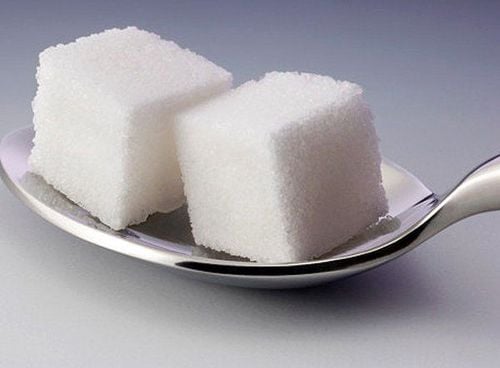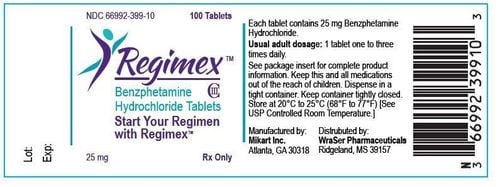This is an automatically translated article.
A lot of people have the habit of eating food quickly and without paying too much attention. It is a very bad habit that can lead to poor chewing, overeating, weight gain and obesity. This article explains why eating too quickly can be one of the leading causes of weight gain.
1. Eating fast can make you eat too much
In today's busy world, people often eat fast and in a hurry. However, the brain needs time to process the signal and recognize satiety. In fact, it can take up to 20 minutes for your brain to realize that you're full.
When eating quickly, the body will easily eat more food than it really needs. Over time, excess calories can lead to weight gain.
A study in children showed that 60% of fast eaters also overeat. Fast eaters are also three times more likely to be overweight.
In short, the brain takes about 20 minutes to realize that you have eaten enough. The habit of eating fast can make a person easy to gain weight due to eating too much
2. Fast eating linked to increased risk of obesity
Obesity is one of the biggest health problems worldwide. This is a complex disease not only caused by an unhealthy diet, a sedentary lifestyle or a lack of will. In fact, complex environmental and lifestyle factors also play a role.
Fast food has been studied as a potential risk factor for overweight and obesity. A recent review of 23 studies found that fast eaters were twice as likely to be obese as slow eaters.
In summary, fast eating is associated with excess body weight. In fact, fast eaters are twice as likely to be obese as slow eaters.

Ăn nhanh có thể dẫn đến tăng cân
3. Eating fast can lead to other health problems
Fasting not only increases the risk of overweight and obesity, but is also linked to other health problems, including:
Insulin resistance : Eating too fast is associated with a higher risk of insulin resistance, is characterized by high blood sugar and insulin levels. It's a sign of type 2 diabetes and metabolic syndrome. Type 2 diabetes: Fast eating is associated with a higher risk of type 2 diabetes. One study found that fast eaters were 2.5 times more likely to get the disease than slow eaters. Metabolic syndrome: Eating quickly and being overweight can increase the risk of metabolic syndrome, a group of risk factors that can increase the likelihood of diabetes and cardiovascular disease. Poor digestion: Fast eaters often report poor digestion as a result of eating too quickly. Food is bitten into larger pieces and chewed less, which can affect the body's digestive process. Lower satisfaction levels: Fast eaters tend to be less satisfied with their meals than slow eaters. This may not be a health issue, but it's important nonetheless. In summary, fast eating may increase the risk of type 2 diabetes, insulin resistance, and metabolic syndrome. It can also lead to poor digestion and a decreased ability to enjoy food.

Ăn nhanh có thể dẫn đến nguy cơ mắc nhiều bệnh
4. How to reduce the speed of eating?
Eating slower can bring many health benefits to the body. It can increase satiety hormone levels, help you feel more satisfied, and reduce calorie consumption. Eating slowly also improves digestive system function and adds to the quality of the meal.
If you want to eat slower, try the following methods:
Don't eat in front of the screen: Eating in front of the TV, computer, smartphone or other electronic device can make you eat fast and lack exercise. central. It can also make it difficult to keep track of how much food you eat. Put your fork down between each meal: This helps you slow down and enjoy each bite more. Don't eat when you're too hungry: Avoid getting too hungry between meals. It can make you eat too quickly and make unhealthy decisions. Carry some healthy snacks with you to prevent this from happening. Sip water: Drinking water during meals will help you feel full and promote slow eating. Chew well: Chew food more often before swallowing. You can try by counting the number of times you chew each piece of food. Try to chew each mouthful of food 20-30 times. Eat fiber-rich foods: High-fiber foods like fruits and vegetables are not only filling, but also take a long time to chew. Take small bites: Taking smaller bites can help you slow down your eating and prolong your meal. Mindful eating: Mindful eating is a powerful tool. The basic principle behind that is paying attention to the food you are eating. Some of the above exercises are practiced in mindful eating. Like all new habits, eating slowly takes practice and patience. Slow eating techniques include chewing more, drinking plenty of water, eating without distractions, and avoiding excessive hunger.
In short, fast eating is a common habit in today's fast-paced world. While it can save you a few minutes during mealtimes, it also increases your risk of various health problems, including obesity and type 2 diabetes. If the goal is to lose weight, then Fast food can hinder your progress. On the other hand, eating more slowly can have powerful benefits – so slow down and enjoy every bite.
Please dial HOTLINE for more information or register for an appointment HERE. Download MyVinmec app to make appointments faster and to manage your bookings easily.
Reference source: healthline.com













